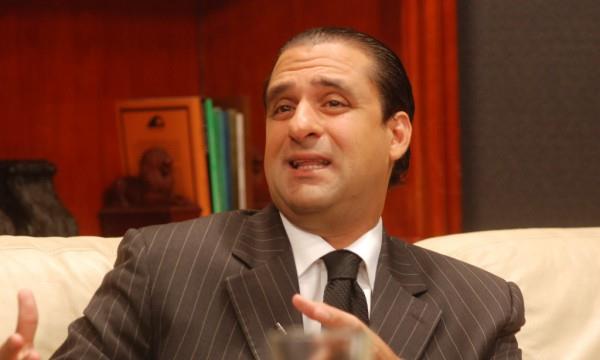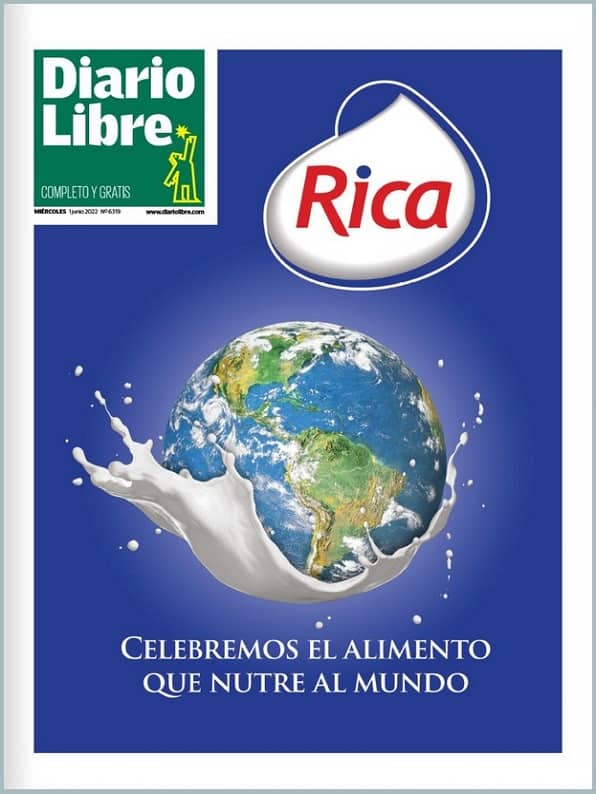Finjus: Law will convert parties into tools for money laundering
Castaños and Conep want more control; Nuñez Collado says there was a consensus

SANTO DOMINGO. The Law of Parties is on the road to be approved without the approval of the major demand from sectors of the civil society: a greater control of the use of public funds and determining the origin of the funds which they receive from the private sector.
The Institutionalism and Justice Foundation (Finjus) one of the institutions that promoted the proposal, warned yesterday that if a Law comes out without the proper controls in order to determine where private funds that enter the parties come from, what they will be approving is a law that could, eventually, convert the parties into tools for money laundering.
"We do not approve a law that is going to legitimize the status quo that now exists," emphasized the Vice President of Finjus, Servio Tulio Castaños.
The jurist indicated that if they do not make clear the origin of the funds, the parties are liable to receive funds which are the result of it illicit activities.
"Now that we are going to approve a Law in which we are trying to preserve the political parties, we cannot approve a Law that does not guarantee the transparency inside these institutions," he pointed out.
Castaños argued that it would be better to postpone the approval of the Law of Political Parties if they are not going to include the controls that society demands.
In a similar manner, the National Council of Private Enterprise (Conep) complained by deploring the level of a lack of controls and a lack of transparency regarding the private donations to the political parties, rejecting the vulnerability given the filtration of funds from illegitimate sources.
They also argued for the use of the funds from the state and public institutions in the election campaign.
"The excessive expansion of public expenditure during election periods has been one of the principal causes of the fiscal deficits in years in which they hold elections," they indicated.
But the deputy and interim president of the Social Christian Reformist Party (PRSC), Victor Bisono, said that "today we voted in favor of the legislation. There is no perfect law, but it is a step in the right direction. The parties should preach by example."
The consensus was broken
Monsignor Agripino Nunez Collado, who has sought a consensus between the political parties for the approval of the project, did not want to expand on the path that has already taken 17 years of bouncing around in the National Congress.
"The parties were ready for this, but it appears that they did not accept the suggestions that by consensus they had agreed upon," he said in reference to a recent meeting.
The Institutionalism and Justice Foundation (Finjus) one of the institutions that promoted the proposal, warned yesterday that if a Law comes out without the proper controls in order to determine where private funds that enter the parties come from, what they will be approving is a law that could, eventually, convert the parties into tools for money laundering.
"We do not approve a law that is going to legitimize the status quo that now exists," emphasized the Vice President of Finjus, Servio Tulio Castaños.
The jurist indicated that if they do not make clear the origin of the funds, the parties are liable to receive funds which are the result of it illicit activities.
"Now that we are going to approve a Law in which we are trying to preserve the political parties, we cannot approve a Law that does not guarantee the transparency inside these institutions," he pointed out.
Castaños argued that it would be better to postpone the approval of the Law of Political Parties if they are not going to include the controls that society demands.
In a similar manner, the National Council of Private Enterprise (Conep) complained by deploring the level of a lack of controls and a lack of transparency regarding the private donations to the political parties, rejecting the vulnerability given the filtration of funds from illegitimate sources.
They also argued for the use of the funds from the state and public institutions in the election campaign.
"The excessive expansion of public expenditure during election periods has been one of the principal causes of the fiscal deficits in years in which they hold elections," they indicated.
But the deputy and interim president of the Social Christian Reformist Party (PRSC), Victor Bisono, said that "today we voted in favor of the legislation. There is no perfect law, but it is a step in the right direction. The parties should preach by example."
The consensus was broken
Monsignor Agripino Nunez Collado, who has sought a consensus between the political parties for the approval of the project, did not want to expand on the path that has already taken 17 years of bouncing around in the National Congress.
"The parties were ready for this, but it appears that they did not accept the suggestions that by consensus they had agreed upon," he said in reference to a recent meeting.


 Diario Libre
Diario Libre
 Diario Libre
Diario Libre